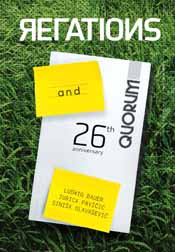Melancholy, Street Heterotopy and Language without Boundaries: The Politics of Croatian Poetry in the Nineteen-Eighties
Melancholy, Street Heterotopy and Language without Boundaries: The Politics of Croatian Poetry in the Nineteen-Eighties
Author(s): Tvrtko VukovićSubject(s): Literary Texts
Published by: Hrvatsko Društvo Pisaca
Summary/Abstract: If we want to discuss the poetry that was created in the nineteen-eighties, it is necessary, at least in a brief sketch, to go back to the nineteenseventies. Nowadays, Croatian literary scholarship almost unanimously supports the view that a radical turnabout took place in the field of lyrics in the nineteen-seventies. I have dealt with that turn-about in great detail elsewhere. To illustrate this, I am giving here the opinion of Krešimir Bagić’s who points out that the poets of the nineteen-seventies focus their interest on the language of the text and its formal properties. They, according to Bagić, prefer production to inspiration, and they prefer textual playfulness to world description. That poetry is therefore extremely matalingustic (focused on the medium of language) and auto-referential focused on itself, very broadly speaking). As an illustration of what this model of poetry looks like, let’s look at one drastic example of it. It is the fifth sonnet in the cycle called “Ondina bez magistrala/Thereness without Free Ways”, which is found in the book of poetry Viseći vrtovi/ Dangling Gardens written by the poet Milorad Stojević.
Journal: Relations
- Issue Year: 2011
- Issue No: 3-4
- Page Range: 21-27
- Page Count: 7
- Language: English

